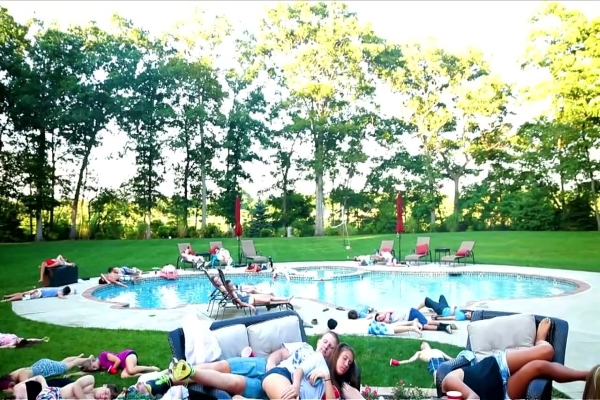They’ve done it again – the industry-shifting forces that are the Millennials & Gen Z have worked their destructive magic on another brand. This time, the travel category is under fire, and Club 18-30 is taking the hit.
We all know that these generations depart radically from their predecessors. When it comes to travel, over 80% of millennials claim to seek unique and adventurous experiences; a greater number of women are travelling solo than ever before; and there’s a cultural shift towards health, wellbeing and sustainability. What’s more, a report issued by the British Pregnancy Advisory Service earlier this year announced that Gen Z – the Millennials’ successors – drink significantly less than previous generations (24% say they never drink and 38% only 1-2 units on a typical occasion). They are also more interested spending time with family than boozing with friends, and they prioritise careers over social status.
As we all gawk at these statistics (1-2 units?!), it’s no real surprise that Thomas Cook failed to find a buyer when they put their Club 18-30 brand up for sale earlier this year.
Club 18-30 emerged in 1968, right when package holidays were experiencing new found popularity. In its hay-day, the business took up to 100,000 bookings per year, attracting young people to resorts across Europe with their catch-phrase “sun, sex and sea”. Fast-forward from then to now, bypassing a series of provocative ad campaigns that would certainly not see the light of day in 2018, and we are faced with a brand that is fundamentally out of touch, outdated and irrelevant.
It seems that nights spent parading down a strip behind a Pied Piper party-rep, peppered by fluorescent ‘zombies’, no longer appeals to the majority of 18-30 year olds. Instead, they are opting for festivals in Croatia, yoga retreats in Northern Spain, sailing excursions around the Greek islands, city breaks in Eastern European and even some more exotic excursions. Now don’t automatically assume millennials are making these choices because they’re all frivolous and prefer eating avocado on toast to owning their own homes; in fact these sorts of holidays cost virtually the same as the seedy package holiday.
So how are brands re-thinking and repositioning to respond to these new generational tastes?
One of the best I’ve seen this year is budget airline Joon, by Air France, who have aimed their proposition at the millennial generation. They boast a ‘large selection of organic, natural products’ on board, craft beer, in-flight entertainment available on your own mobile device or tablet via the YouJoon App, and flight attendants in smart-casual attire (“white sneakers required!”). The proof will be in the (probably vegan, gluten-free) pudding, but it is bold and brave for a new brand to grab a generation’s habits and attitudes by both hands and shake up the industry.
What’s more, the screams of rejection to Thomas Cook’s Club 18-30 did not fall on deaf ears. We are looking forward to them filling this hole in their portfolio with something that’s more culturally relevant and self-aware. This summer they launched the first trips by new (and more up-market) brand Cook’s Club, which promises culinary and cultural experiences, mellow music and artisan cocktails for 20-somethings. Bringing ‘urban cool’ to the beach, their first hotel in Hersonissos, Crete, has delivered 93% occupancy rates and they’re set to expand in 2019 with the opening of 10 new Cook’s Club hotels.
Whilst some might be reminiscing about their 18-30 days, we can’t wait to see what Thomas Cook do next to bring travel experiences that are more inclusive, relevant and forward-thinking for the new age of travellers.
How can your brand engage with this powerful and challenging group of consumers before it’s too late?


